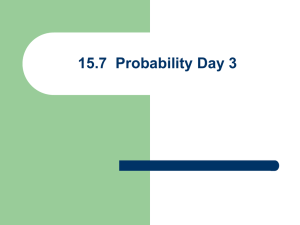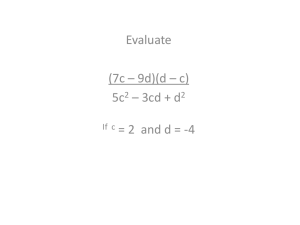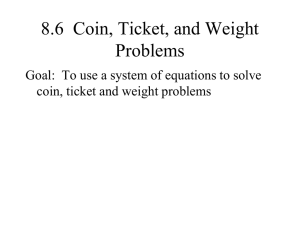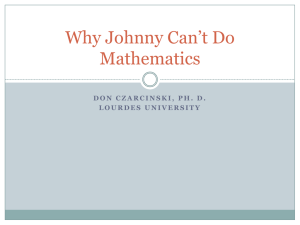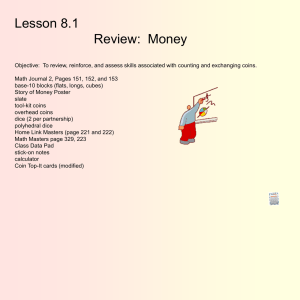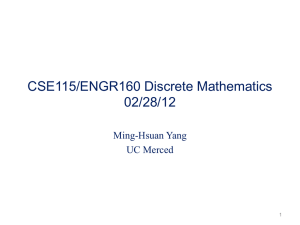ACT Problem
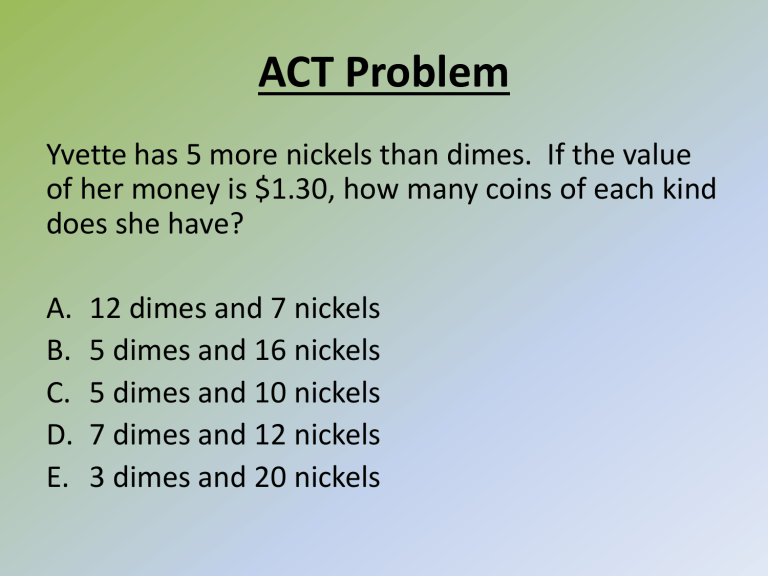
ACT Problem
Yvette has 5 more nickels than dimes. If the value of her money is $1.30, how many coins of each kind does she have?
A. 12 dimes and 7 nickels
B. 5 dimes and 16 nickels
C. 5 dimes and 10 nickels
D. 7 dimes and 12 nickels
E. 3 dimes and 20 nickels
ACT Problem
Yvette has 5 more nickels than dimes. If the value of her money is $1.30, how many coins of each kind does she have?
Now, there are only two cases where there are five more nickels than dimes:
A. 12 dimes and 7 nickels
B. 5 dimes and 16 nickels
C. 5 dimes and 10 nickels
D. 7 dimes and 12 nickels
E. 3 dimes and 20 nickels
Act Problem
Now, we will evaluate the two equations to find which is equal to $1.30.
C.
5 dimes and 10 nickels = 5x(.10) + 10x(.05) = $1.00
D.
7 dimes and 12 nickels = 7x(.10) + 12x(.05) = $1.30
D is the only one that works.
ACT Problem
Thus, going back.
Yvette has 5 more nickels than dimes. If the value of her money is $1.30, how many coins of each kind does she have?
A. 12 dimes and 7 nickels
B. 5 dimes and 16 nickels
C. 5 dimes and 10 nickels
D. 7 dimes and 12 nickels
E. 3 dimes and 20 nickels
Slope-Intercept Form
Friday Test
(#1-12) Graph line segments, find their slope and tell whether they are parallel, perpendicular or neither
(#13-24) Find distance and slope
(#25-26) Distance challenge problems
Bonus – Multidimensional distance problem
Challenge Problem Review
Name a point that is 5 away from (1,1)?
Now, 5 = ( Δ Y) 2 +(ΔX) 2 = 4 + 1 .
( Δ Y) 2
(ΔX) 2
= 4. So, Δ Y = 2.
= 1. So, ΔX = 1.
Thus, a final answer would (2,3).
Challenge Problem Review
Name a point that is 5 units away from (1,2)?
Recall that we can simply count distances of segments with a slope of 0 or undefined.
So, let us keep the y the same and go over five.
Consequently, we get the answer (6,2).
Original
1
2
−7
8
−6
5
More Examples
Parallel
1
2
Perpendicular
−2
1
−7
8
8
7
−6
5
5
6
